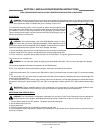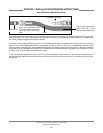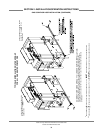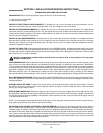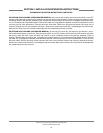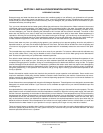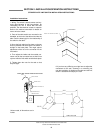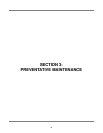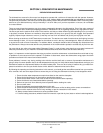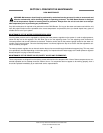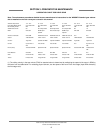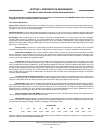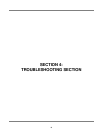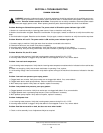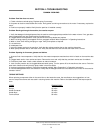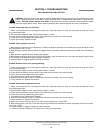
AJ-64 Conveyor Series Technical Manual 7610-003-30-93
Issued: 05-02-2006 Revised: N/A
SECTION 4: TROUBLESHOOTING
COMMON PROBLEMS
51
Problem: Pawl bar does not move.
1. Failed or broken overload spring. Replace spring if necessary.
2. No power to the drive motor/failed drive motor. Verify power and wiring connections to the motor. If necessary, replace the
motor.
3. Pawl bar not properly installed. Verify that the pawl bar is installed correctly.
Problem: Racks go through the machine, but results are poor.
1. Verify that detergent is being dispensed into the machine at the appropriate quantities for the water volume. If not, get deter-
gent to appropriate level and review results of washing ware.
2. Clogged strainers/scrap basket. Clean out strainers and scrap basket and replace.
3. Ware not being properly prescrapped. Review paragraph entitled “Ware Preparation” in Operating Instructions.
4. Wash or rinse arms missing end plugs or caps. Verify and replace as required.
5. Low tank heat.
6. Inadequate rinse.
7. Incorrect voltage coming to the machine. Verify that the voltage matches that on the machine data plate.
8. Wash pump cavitation due to low water level. Verify that the drains are shut and that the water level is correct.
Problem: Spotting of silverware, glasses and dishes.
1. Incorrect final rinse temperature. Verify that the rinse water temperature matches that which is listed on the machine data
plate.
2. Clogged wash and/or rinse nozzles and arms. Remove the arms and verify that they and their nozzles are from debris.
3. Excessively hard water. Install a water softener to reduce hardness.
4. Loss of water pressure due to clogged/obstructed wash pump. Turn the power off to the machine at the source. Drain the
wash tank of water and verify that the pump intake is free from debris.
5. Improper scrapping procedures. Review the paragraph entitled “Ware Preparation” in Operating Instructions.
6. incorrect detergent/chemcial concentrations. Verify that the detergent/chemical concentrations are correct for the associat-
ed water volume.
TORQUE SETTINGS
When replacing components either in the control box or the heater box area, the manufacturer has suggestions on how
much to torque the screws and nuts used in securing items to the machine. Refer to the table below for the torque specific-
tions:
ITEMS
TORQUE SPEC
Relays 16 In/lbs
Heater Contactor 35 In/lbs
Heater Nuts 16 In/lbs
Terminal Block 50 In/lbs



